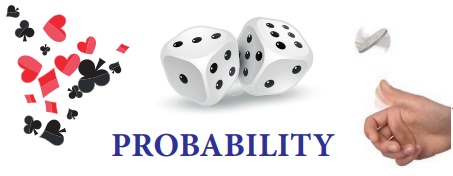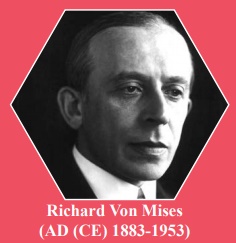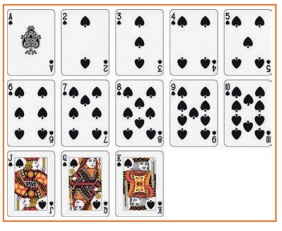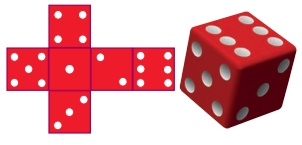Chapter: 9th Maths : UNIT 9 : Probability
Probability
PROBABILITY

Probability theory is nothing more than common sense reduced to calculation. − Pierre Simon Laplace.
The statistical or empirical, attitude towards probability has been
developed mainly by R.F.Fisher and R.Von Mises. The notion of sample space comes
from R.Von Mises. This notion made it possible to build up a strictly mathematical
theory of probability based on measure theory. Such an approach emerged gradually
in the last century under the influence of many authors.

Richard Von Mises (AD (CE) 1883-1953)
Learning Outcomes
• To understand
the basic concepts of probability.
• To understand
the classical and empirical approach of probability.
• To familiarise
the types of events in probability.
Introduction
To understand
the notion of probability, we look into some real life situations that involve some
traits of uncertainty.

A life-saving
drug is administered to a patient admitted in a hospital. The patient’s relatives
may like to know the probability with which the drug will work; they will be happy
if the doctor tells that out of 100 patients treated with the drug, it worked well
with more than 80 patients. This percentage of success is illustrative of the concept
of probability; it is based on the frequency of occurrence. It helps one to arrive
at a conclusion under uncertain conditions. Probability is thus a way of quantifying
or measuring uncertainty.

You should
be familiar with the usual complete pack of 52 playing cards. It has 4 suits(Hearts
♥, Clubs ♣, Diamonds ♦,
Spades♠), each with 13 cards. Choose one of the suits or cards, say spades. Keep
these 13 cards facing downwards on the table. Shuffle them well and pick up any
one card. What is the chance that it will be a King? Will the chances vary if you
do not want a King but an Ace? You will be quick to see that in either case, the
chances are 1 in 13 (Why?) . It will be the same whatever single card you choose
to pick up. The word ‘Probability’ means precisely the same thing as ‘chances’ and
has the same value, but instead of saying 1 in 13 we write it as afraction 1/13.
(It would be easy to manipulate with fractions when we combine probabilities). It
is ‘the ratio of
the favourable cases to the total number of possible cases’.

Have you seen a ‘dice’ ? (Some people use the word
‘die’ for a single ‘dice’; we use ‘dice’ here, both for the singular and plural
cases). A standard dice is a cube, with each side having a different number of spots
on it, ranging from one to six, rolled and used in gambling and other games involving
chance.
Note
In a fair die the sum of the numbers turning on the opposite sides
will always be equal to 7.
If you throw
a dice, what is the probability of getting a five? a two? a seven?
In all the
answers you got for the questions raised above, did you notice anything special
about the concept of probability? Could there be a maximum value for probability?
or the least value? If you are sure of a certain occurrence what could be its probability?
For a better clarity, we will try to formalize the notions in the following paragraphs.
Related Topics